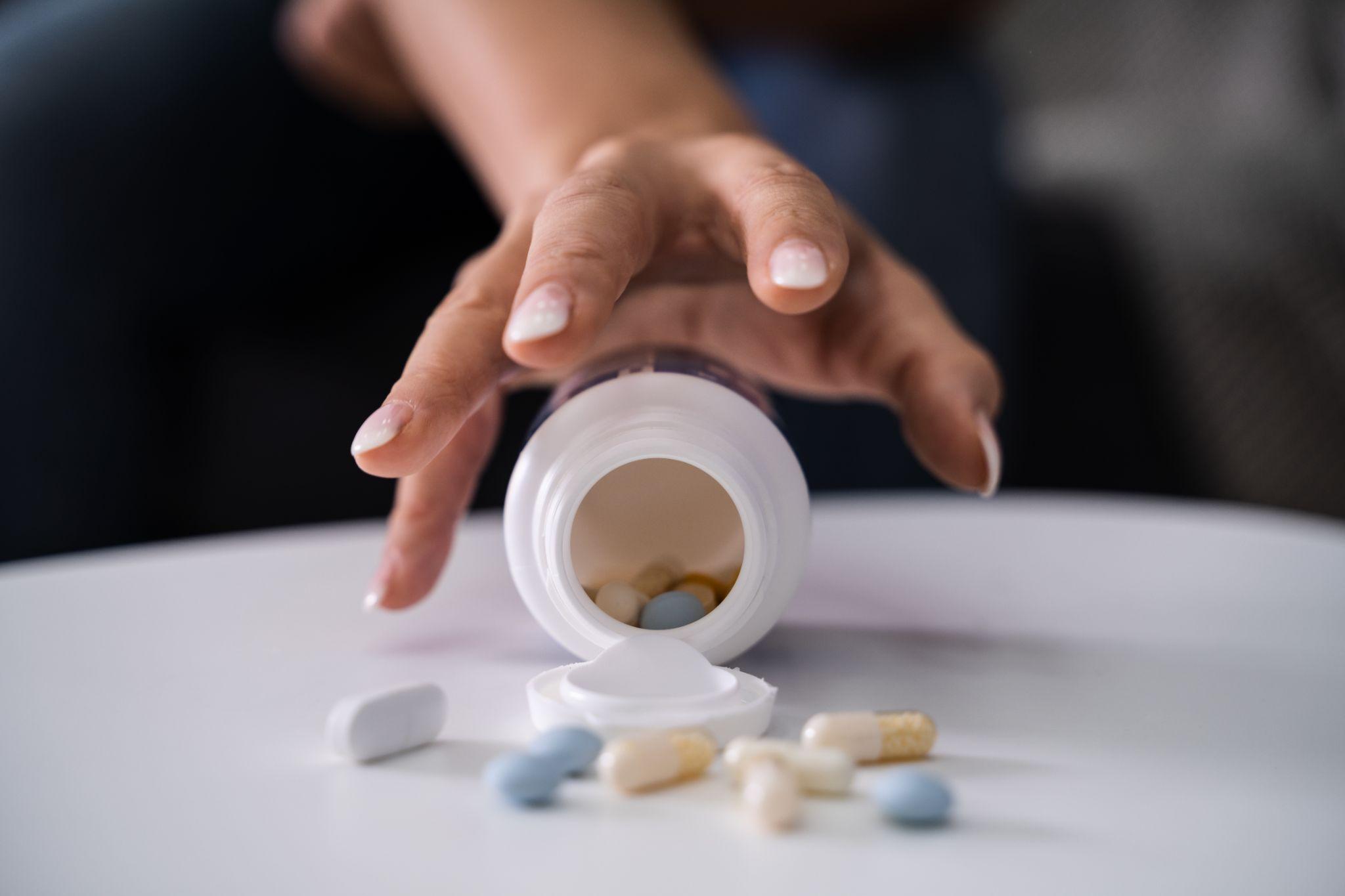In a world where the use of prescription and non-prescription drugs is increasingly common, understanding the distinction between drug abuse and drug misuse is more important than ever.
This distinction is not just a matter of semantics—it is crucial for identifying the appropriate approach to treatment and support. Drug abuse and drug misuse, though often used interchangeably, are fundamentally different concepts.
At Lumina Recovery, we will explore these differences in a detailed, compassionate, and professional manner to enhance understanding and provide guidance.
Definition and Understanding
Drug Abuse
Drug abuse refers to the intentional use of an illicit or prescription drug used inappropriately for non-medical purposes, especially when such use is harmful or dangerous. This includes the use of illicit drugs or the misuse of prescription drugs in a way that is deliberately harmful.1
Drug abuse is characterized by intentional, often compulsive behavior that can lead to addiction or physical dependence.
Examples of drug abuse include the regular use of illegal drugs like cocaine or heroin, taking prescription drugs for recreational purposes, or continually using a drug despite experiencing negative consequences.
Drug abuse is a more severe condition than drug misuse and often requires more intensive treatment and intervention.
Drug Misuse
Drug misuse refers to the incorrect, improper, or unhealthy use of medication. This often occurs when individuals take medicine in a manner that deviates from the prescribed method.2
For example, someone might take a higher dose of painkillers than prescribed or use another person’s prescription medication. Misuse can include using medication for its psychoactive effects, even if it’s not intended for such use. It can also be as simple as forgetting to take a dose.
It’s important to note that drug misuse is often unintentional and may involve overuse or underuse of medication. It typically lacks the compulsive patterns seen in abuse and is more often a result of misinformation or misunderstanding about the correct use of a drug.
Causes and Motivations
Understanding the causes and motivations behind drug misuse and abuse is essential for effective treatment and prevention.
Drug Abuse
Drug abuse frequently has its roots in psychological or social issues. It can be linked to underlying mental health disorders, such as anxiety, depression, or post-traumatic stress disorder.
Drug abuse may serve as a coping mechanism for stress, trauma, or emotional pain. Social factors, including peer pressure, the influence of one’s social environment, or a desire to escape from reality, also play a significant role.
This intentional use of drugs for non-medical purposes often starts as a way to deal with life’s challenges or psychological pain but can quickly escalate into addiction.
Drug Misuse
Drug misuse often stems from a lack of knowledge or misunderstanding about how to use medication correctly. This can be due to inadequate guidance from healthcare providers, confusion over medical instructions, or a simple mistake in the administration of medication.
For instance, a person might take an antibiotic for a viral infection, not understanding that antibiotics are ineffective against viruses.
Misuse can also occur when individuals, for convenience or due to unavailability of the correct medication, use what is readily at hand, even if it is not appropriate for their condition.
Health Implications
The health implications of drug misuse and abuse are significant, though they differ in severity and nature.
Drug Abuse
The health implications of drug abuse are generally more severe and far-reaching. Long-term drug abuse can lead to a host of serious health problems, including liver damage, heart disease, respiratory issues, and brain damage.
The risk of physical dependence and addiction is high, and withdrawal symptoms can lead to dangerous, life-threatening conditions without proper medical supervision. People who abuse drugs can also significantly increase the risk of overdose, which can be fatal.
Moreover, the impact of drug abuse extends beyond physical health, often leading to mental health disorders, strained relationships, job loss, and legal troubles.
Drug Misuse
Drug misuse can lead to adverse drug effects, including allergic reactions or side effects not anticipated by the user. Misuse of antibiotics can contribute to increased resistance, rendering these drugs ineffective when they are truly needed.
The health issues arising from misuse are often related to the specific medication and the manner in which it is misused. These may range from mild to severe, depending on the drug and the extent of misuse.
Treatment and Support
The approach to treatment and support differs significantly between drug misuse and drug abuse, largely due to the varying nature and severity of each.
Drug Abuse
For drug abuse, treatment is typically more intensive and multifaceted. Detoxification is often the first step, helping individuals safely withdraw from the substance they are abusing.
This is usually followed by rehabilitation programs that can be inpatient or outpatient, depending on the severity of the abuse. Therapy, both individual and group, plays a crucial role in treatment, addressing the psychological aspects of addiction.
The treatment for drug abuse is generally long-term and focuses on preventing relapse, managing cravings and drug dependency, and dealing with the underlying psychological issues that led to the drug addiction and abuse in the first place.
Drug Misuse
In cases of drug misuse, the primary focus is often on education and correcting misunderstandings. This involves educating patients on the correct use of medications, potential side effects, and the risks associated with improper use.
Communication between healthcare providers and patients is key to ensuring that instructions are clear and understood. In some situations, counseling or therapy may be necessary, particularly if the misuse stems from deeper issues such as anxiety about health or chronic pain management.
The goal is to address not only the physical aspects of misuse but also any underlying psychological factors.
Prevention and Awareness
Prevention and awareness strategies for drug misuse and abuse are essential components of addressing these issues in the community.
Drug Abuse
Preventing drug abuse often requires broader community involvement. Educational programs in schools, community centers, and public forums can raise awareness about the dangers of drug abuse.
These programs aim to address not only the risks of drug use but also the social and emotional factors that can lead to abuse. Mental health support and stress management programs can also be effective in preventing drug abuse by providing individuals with healthier coping mechanisms.
Additionally, policy measures, such as regulating the availability of certain medications and illegal substances, play a crucial role in prevention efforts.
Drug Misuse
For drug misuse, education is a powerful tool. Public health care campaigns, clear guidelines from healthcare providers, and educational programs can significantly reduce instances of misuse.
These efforts focus on the proper use of medications, understanding prescriptions, and the dangers of using medication not prescribed to an individual.
Furthermore, healthcare systems can improve practices to prevent errors, such as clearer labeling of medications and enhanced patient-provider communication.
Understand Drug Abuse and Drug Misuse With Lumina Recovery
Understanding the differences between drug abuse and drug misuse is vital in addressing the challenges posed by both.
While drug misuse is often a result of misinformation or misunderstanding, drug abuse is a more complex issue intertwined with psychological, social, and environmental factors.
Recognizing these differences is not just important for individuals but also for communities and healthcare providers in developing effective prevention and treatment strategies.
At Lumina Recovery, we offer a variety of resources to help you or a loved one fight drug abuse and drug misuse with our detox programs and various addiction treatment services.
Don’t hesitate to reach out to our team of professionals today to learn more about Lumina Recovery and our programs.
Sources:



